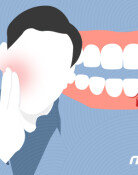Will Reviving Consumption Save the Economy?
Will Reviving Consumption Save the Economy?
Posted July. 05, 2005 02:28,
The economic growth rate is staggering due to sluggish corporate investment on facilities, but private consumption is showing signs of recovery, albeit slightly.
Therefore, in order to revive the economy, the government should deregulate corporate investment rather than artificially stimulate household consumption, experts say.
According to the Korea Development Institute and the Bank of Korea, GDP in the first quarter of this year increased by 2.7 percent from that of last year, and private consumption increased by 1.4 percent.
The gap between the two indexes has narrowed to 1.3 percent from 6.6 percent in the first quarter of last year. This can be interpreted to mean that the escalating household consumption has little influence on the economic growth rate.
Assistant researcher Cho Seong-hoon in the macro-finance and macro-economy research department of KDI said, In times of depression, the corporate sector tends to be more stringent than the household economy.
Household Consumption Is Recovering-
Increasing shipments of durable consumer goods for domestic use demonstrates the recovery of private consumption.
According to the Korea National Statistical Office, the shipping of durable consumer goods for the domestic market in May went up for the first time in 28 months by 9.5 percent from the same month last year.
In particular, items like hang-on-the-wall televisions, home-use air conditioners, medium-sized cars, and MP3 players led the upward record.
The number of hang-on-the-wall TVs shipped in May almost quadrupled from 6,783 to 27,305 from the same month last year. Home-use air conditioner shipments soared from 113,592 to 311,580, and medium-sized car shipments also jumped from 14,300 to 28,372 over the same period. MP3 player shipments also increased by 41.1 percent, and digital cameras by 0.9 percent.
Department stores received more customers as well.
Shinsegae Department Store analyzed the purchasing patterns of its customers in the first half of this year, and they revealed that the total number of customers were 550,000, four percent up from 530,000 in the same period last year. The customers visited the department store 5.6 times and purchased goods worth 820,000 won on average.
Executive director Kim Young-ik of the Daeshin Economic Research Institute said, We still need to check if all the shipped goods have sold, but it seems as if household consumption is recovering after hitting the bottom.
Investment Sentiment Remains Frozen-
The prospect for international oil prices and the foreign exchange rate, which directly affect corporate investment, is still gloomy in the second half, and investment sentiment is accordingly still frozen.
According to the report titled, Economic Policies Assessment and Growth Outlook by Companies released by the Korea Chamber of Commerce and Industry yesterday, among 300 manufacturers in the Metropolitan Seoul area, 44 percent, the biggest group, expect that it will be the first quarter of next year or later that the economy will hit the bottom.
Many companies answered the economy will start recovering either in the second half of next year (37 percent) or in the first half (32 percent), but 22 percent still picked 2007 or later.
The Samsung Economic Research Institute gave a bleak prediction that consumer prices could increase by more than four percent in the second half of this year due to high oil prices, as middle east Dubai oil is likely to retain its current price level of 50 to 60 dollars per barrel.
The Korea Institute for International Economic Policy predicts that the exchange rate of the Korean won against the dollar could drop to 970 won, although it has been going up recently.
The vice chairman of the Korea Advertisers Association, Kim Yi-hwan, said, Various indexes indicate that it is highly likely that the growth in the corporate sector will remain blunt, making it hard to predict when the economy will be revived.




![[이진영 칼럼]잘난 韓, 못난 尹, 이상한 張](https://dimg.donga.com/c/138/175/90/1/wps/NEWS/IMAGE/2026/01/20/133198367.1.jpg)


